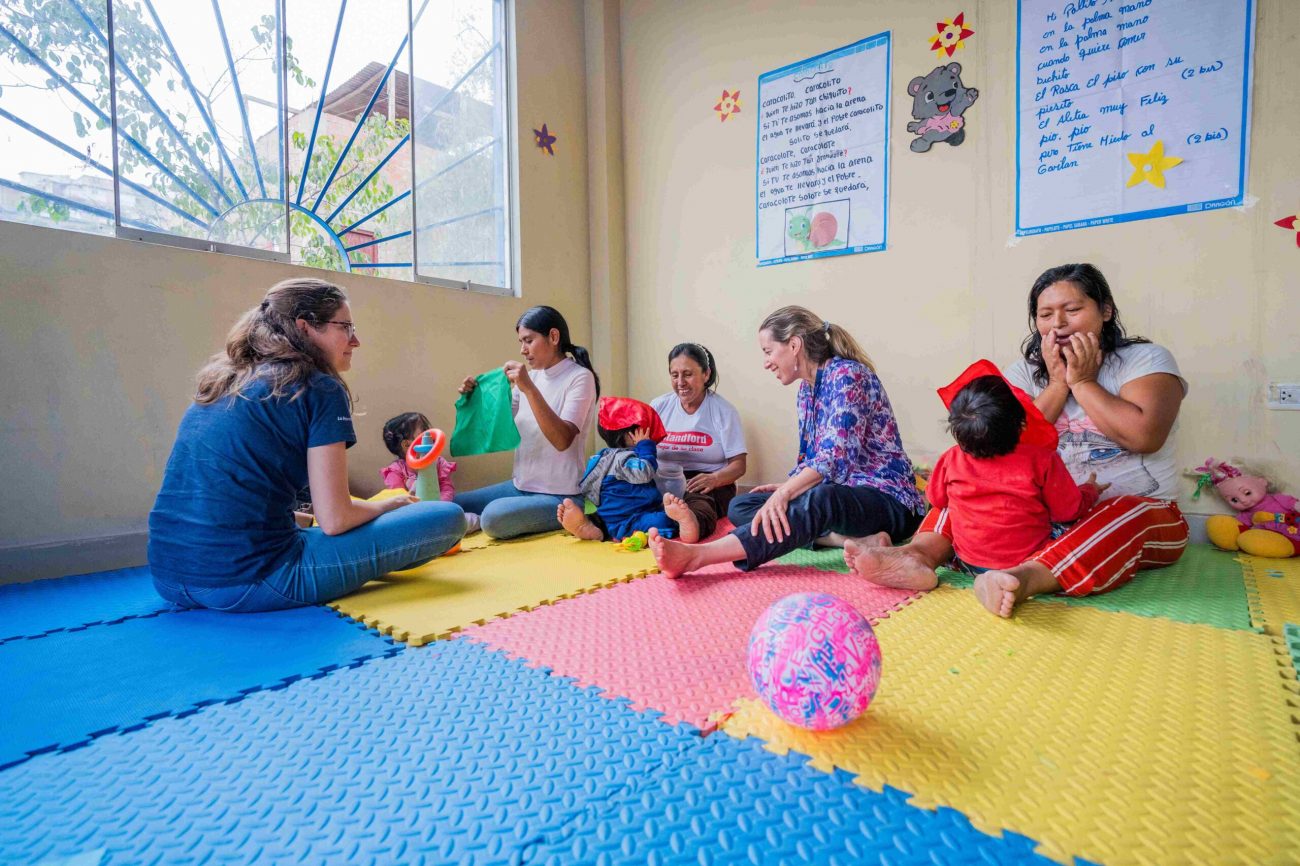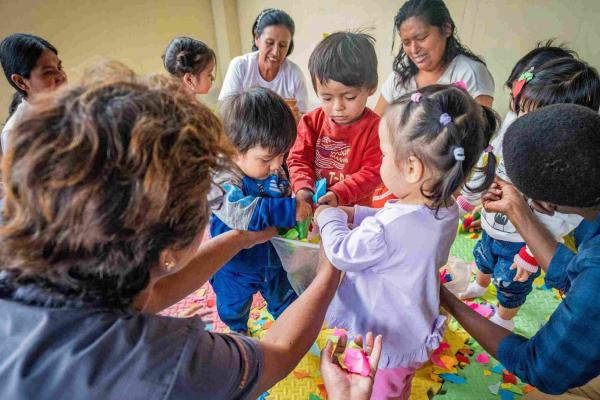In Peru, more than half of children between 9 and 12 months of age have not developed an adequate bond of trust, security and emotional stability with their mother or primary caregiver. According to figures from 2021, only 34.4% of children under 36 months are up to date with their growth and development controls according to their age, which highlights a problem facing early childhood, since the first two years of life are the basis for psychomotor, emotional and social development.
In this context, multiple socioeconomic and cultural factors influence the appropriate progress of childhood during its earliest stages, such as poverty, insufficient quality of educational, health and food services, among others. These challenges related to risk or delay in child development vary according to the nature and severity of each case, which is why early detection through the Controls of Growth and Development (CRED) is crucial.
Our commitment to children
Since 2016, we have been working on child development as the best investment to train the future generation of responsible and productive citizens for society. We achieve this through an educational and community support strategy that increases access to health services aimed at protecting early childhood, such as growth and development coverage, immunization and reducing the risk of early childhood developmental delay.

Part of these efforts is our community-based early childhood development intervention CASITA, which is part of our Child Health project. Through CASITA we seek to enrich skills and promote positive interactions between caregivers and children from 6 to 24 months, to foster the development of safe, sensitive and violence-free relationships, and thus build a solid foundation, which helps the infant reach his or her full potential.
To do this, we first identify children who need to strengthen their skills according to CRED results, in coordination with health facilities in vulnerable communities.
From that point on, CASITA begins a screening effort to identify potential participants in the community, through a list of children provided by the health facilities and censuses applied by the team in the intervention areas, based on the Psychomotor Development Evaluation Scale (EEDP) test for children under 2 years of age.
The figure of community health agents (CHAs) is fundamental in CASITA. They are trained by SES in child development methodologies, early stimulation, socioemotional support for caregivers, among others, to lead the 12 weekly sessions of the intervention. This allows them to be trained to identify risk factors or alerts in children, and prioritize activities that need to be reinforced over others.
Our contributions in 2022
Actions in favor of children in communities in Cusco
“He has been one of the children who has come out of risk [in his development] the fastest, he is very loose, very participative”, proudly comments María Isabel Huachaca, community health agent in the district of Capacmarca, Cusco. She is referring to Pedrito, who began his sessions at CASITA when he was 1 year and 7 months old.
In Cusco, only 31% of children under one year old have their vaccinations completed, and 37% have not received care at CREDs for their age. Added to this is the high percentage of poverty and low educational level in rural areas. That’s why Alicia Vasquez, Pedrito’s mom, has witnessed that early detection of risk factors is key in child development.
Now Pedrito has a more hopeful present, and future:
https://youtu.be/jyQa8I3aa7E
Timely accompaniment in early stimulation
In early 2023, Genesis started looking into autism because Ghael, her 1 year and 2 month old son was unsociable and did not respond to his name.
Thanks to this timely reaction, and in coordination with the Jorge Lingán health facility in Carabayllo, CASITA identified, through Ghael’s EEDP result, that he was developmentally delayed. This is how Genesis immediately responded to the invitation to participate in CASITA with her young son.
Since then, Genesis noticed significant improvements in her young son: he began to pronounce vowels, to be more sociable with other children, and to concentrate on CASITA activities that stimulated his motor and coordination skills.
Her case is a clear example that the commitment of caregivers and parents, along with the support of Socios En Salud, has the potential to change the future of children in the country’s most vulnerable communities.
Find out the full story of Ghaelito here.
From Socios En Salud we reaffirm our commitment to strengthen the health systems, with the purpose of raising both the coverage and the quality of services aimed at protecting children. In turn, we will strive to build healthy, safe and social environments that positively influence child development and care.
